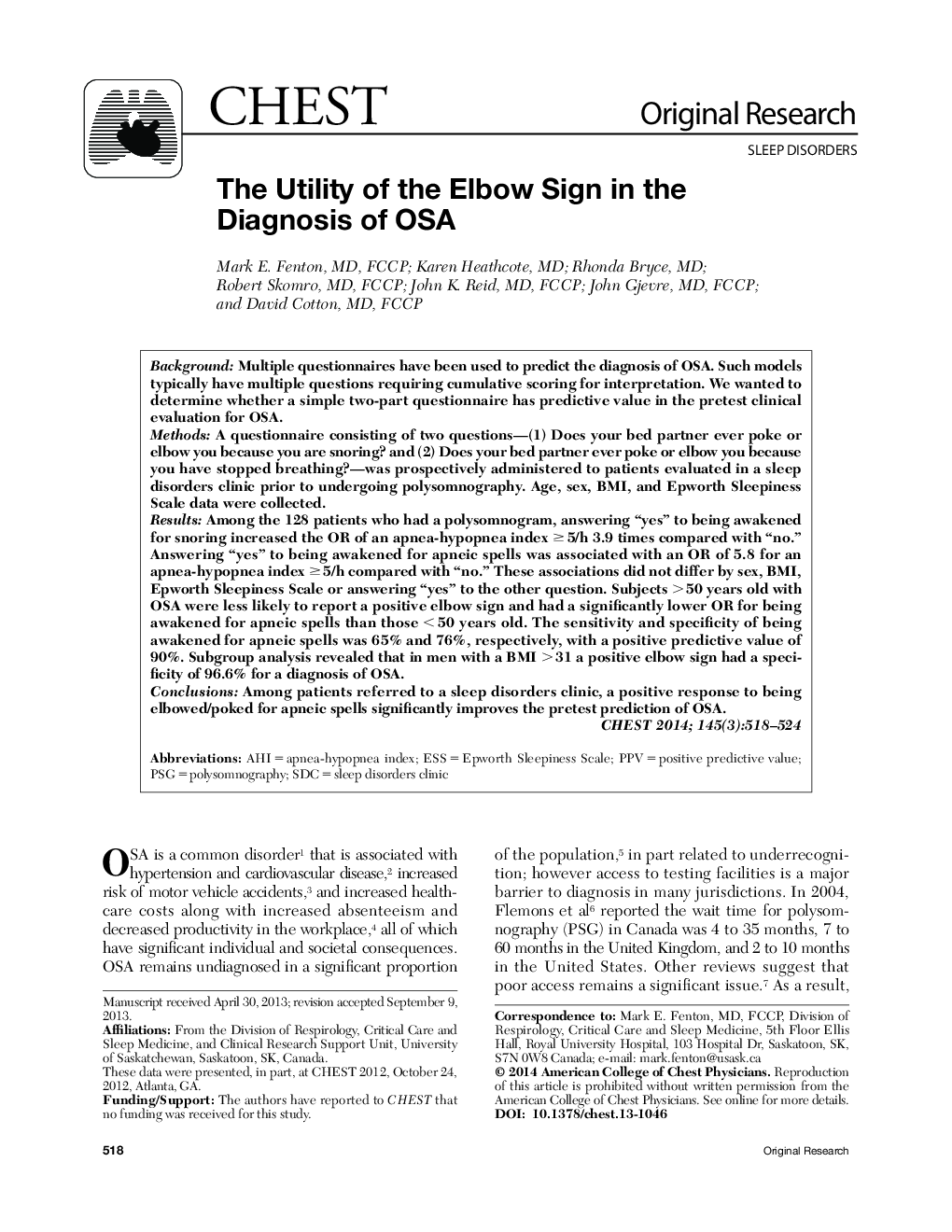| Article ID | Journal | Published Year | Pages | File Type |
|---|---|---|---|---|
| 2900020 | Chest | 2014 | 7 Pages |
BackgroundMultiple questionnaires have been used to predict the diagnosis of OSA. Such models typically have multiple questions requiring cumulative scoring for interpretation. We wanted to determine whether a simple two-part questionnaire has predictive value in the pretest clinical evaluation for OSA.MethodsA questionnaire consisting of two questions—(1) Does your bed partner ever poke or elbow you because you are snoring? and (2) Does your bed partner ever poke or elbow you because you have stopped breathing?—was prospectively administered to patients evaluated in a sleep disorders clinic prior to undergoing polysomnography. Age, sex, BMI, and Epworth Sleepiness Scale data were collected.ResultsAmong the 128 patients who had a polysomnogram, answering “yes” to being awakened for snoring increased the OR of an apnea-hypopnea index ≥ 5/h 3.9 times compared with “no.” Answering “yes” to being awakened for apneic spells was associated with an OR of 5.8 for an apnea-hypopnea index ≥ 5/h compared with “no.” These associations did not differ by sex, BMI, Epworth Sleepiness Scale or answering “yes” to the other question. Subjects > 50 years old with OSA were less likely to report a positive elbow sign and had a significantly lower OR for being awakened for apneic spells than those < 50 years old. The sensitivity and specificity of being awakened for apneic spells was 65% and 76%, respectively, with a positive predictive value of 90%. Subgroup analysis revealed that in men with a BMI > 31 a positive elbow sign had a specificity of 96.6% for a diagnosis of OSA.ConclusionsAmong patients referred to a sleep disorders clinic, a positive response to being elbowed/poked for apneic spells significantly improves the pretest prediction of OSA.
